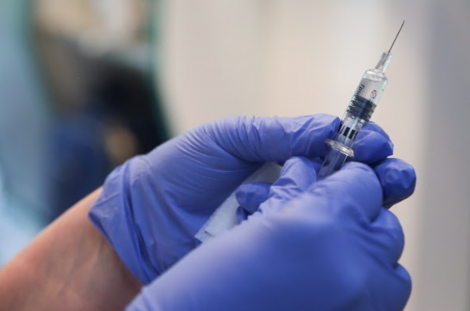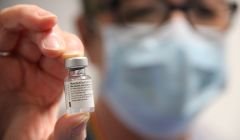Health / Flu vaccination more important than ever
Local health board scores better than most in vaccination data comparison
NHS SHETLAND, along with other health boards across the country, are preparing for a campaign to significantly increase the uptake of the annual flu vaccine this winter.
And with the Covid-19 pandemic far from over it is more important then ever to get the flu vaccine this autumn, health experts warn.
Figures collated by the BBC’s shared data unit show that in most UK health board areas the proportion of people taking the jab is declining every year.
Of particular concern is the low uptake among people under 65 with serious health conditions such as asthma or Multiple Sclerosis.
The figure for Shetland in 2019 was 42.9 per cent, a drop of 11 per cent points since 2015, and slightly below the overall Scottish average of 43.3 per cent.
However, NHS Shetland, in line with other health boards in Scotland, fares generally better than health boards in England, though vaccination figures continue to be below the 75 per cent uptake recommended by the World Health Organisation (WHO).
Vaccination levels for pre-school children in 2019 sat at 68.8 per cent (compared to the Scottish average of 52 per cent); 77 per cent for primary school children (Scottish average 71 per cent) and 65.5 per cent for health care workers (average 51.9 per cent, and a marked increase from just 19.4 per cent in 2015).
NHS Shetland’s public health consultant Dr Susan Laidlaw said health teams have been working hard every year to promote flu vaccinations for the eligible groups and aim to make it as easy as they can for people to get their dose.
“We know that the group where uptake tends to be lowest (across Scotland) is those who are aged under 65 but have medical conditions that put them at increased risk of complications if they catch flu,” she said.
Become a member of Shetland News
“There are probably a number of reasons for this. For example, people whose conditions are well managed may not see themselves as particularly vulnerable or at risk because they generally feel healthy and so do not feel they need a flu vaccination.
“Also, people in this group are likely to be in work or education and it can be more difficult to get to an appointment or clinic.
“Locally, there has been work on increasing the opportunities for people to get their vaccination – for example how the Clickimin flu fairs for people who live in Lerwick could be extended for people who work in Lerwick.
“Unfortunately, these plans have been overtaken by the pandemic and the different processes that we now have to follow. We cannot run large drop-in clinics this year for example.”
In Scotland the flu vaccine is offered to: –
- All primary school children
- Children aged two to five (children aged two on 1 September 2020 and not yet in school)
- Anyone aged 55 and over
- Anyone with a health condition
- Those living with people shielding
- Pregnant women
- Healthcare workers
- Unpaid and young carers
- Social care workers who provide direct personal care
Dr Laidlaw said it was “always important” to get the annual flu vaccination if offered, but this year the situation has become more problematic due to the presence of the Covid-19 virus.
“People who are more susceptible to being seriously unwell with flu, or indeed to die from flu, are also those who are more likely to be seriously ill with Covid-19 and to die from flu,” the public health consultant said.
“If someone who was vulnerable was to catch both flu and Covid-19 at the same time, this could clearly be very dangerous.
“Everyone will be aware of the concerns about the impact of Covid-19 on healthcare services, but we have the same concerns every year of the potential impact of flu.
“So, as well as all the guidance and restrictions we have in place to protect the health service from Covid-19, we also have to protect it from the impact of flu – and annual vaccination is the best way to do that.
“This is not just avoiding overwhelming the hospital and primary care, but also trying to reduce the number of people with fever and coughs in the community that could be due to flu or Covid-19.”
She added: “We are currently planning our seasonal flu programme and this will include communication and publicity within the local Shetland community, using national and local resources.
“Individuals who will be vaccinated in primary care will receive nationally produced letters and will also be invited by their own practice (different practices use different methods for this).
“All primary school children will receive and invite and consent form through their school.”
Become a member of Shetland News
Shetland News is asking its many readers to consider paying for membership to get additional features and services: -
- Remove non-local ads;
- Bookmark posts to read later;
- Exclusive curated weekly newsletter;
- Hide membership messages;
- Comments open for discussion.
If you appreciate what we do and feel strongly about impartial local journalism, then please become a member of Shetland News by either making a single payment, or setting up a monthly, quarterly or yearly subscription.


































































